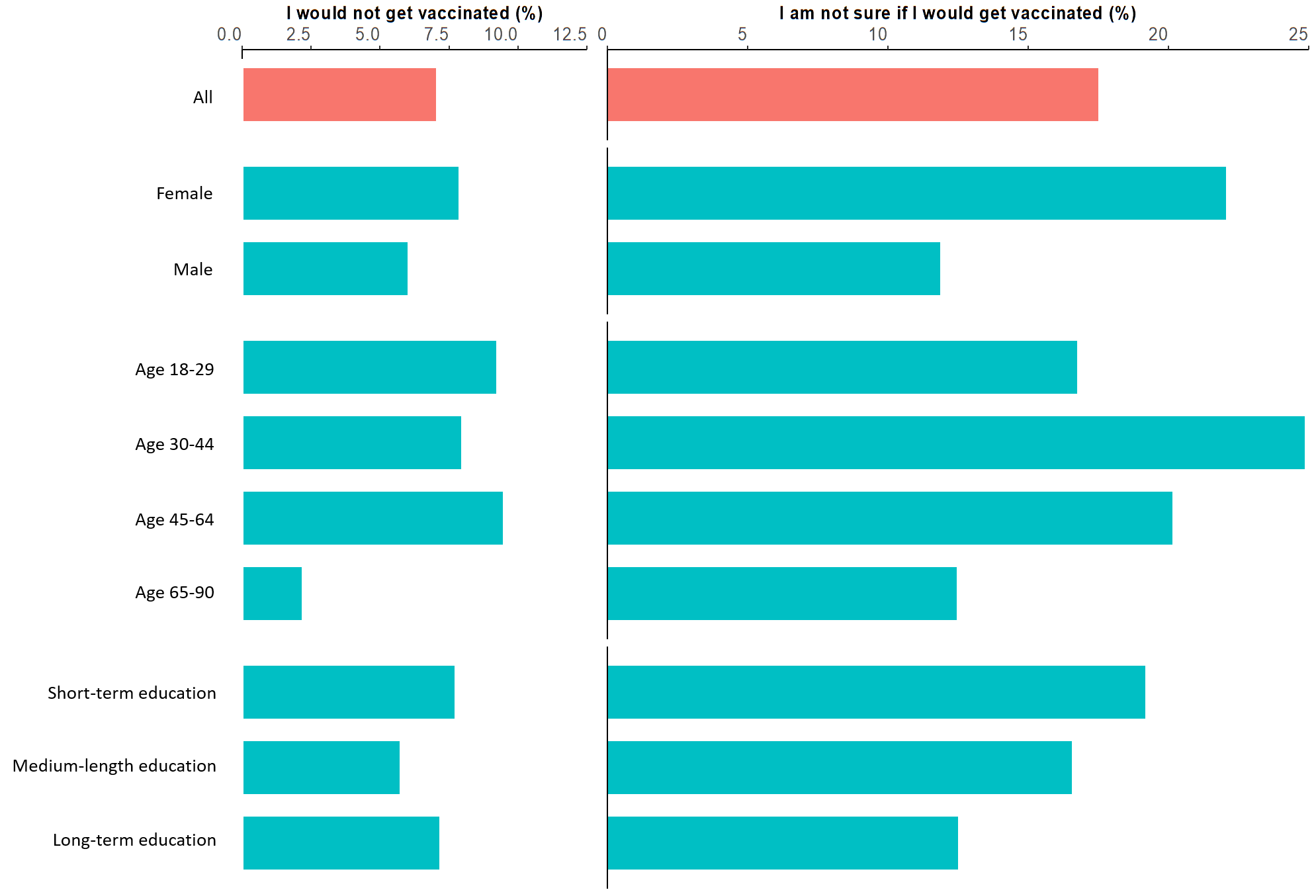The Danes' attitude towards a COVID-19 vaccine
4 December 2020
The government announced on 26 November that a vaccine against COVID-19 will be available in Denmark at the beginning of 2021. According to the Danish Health Authority, it may be an uphill battle to convince Danes to get vaccinated because the vaccinations will be voluntary.
Ahead of the vaccine’s distribution, it is important to ask: "What are Danes' attitudes towards an approved vaccine against coronavirus?" Researchers from the Department of Public Health at the University of Copenhagen, in collaboration with the consumer-research company Epinion, have tried to gain insight into this question. Every two weeks since 10 September, we have asked 300 different people from the general population (age 18 and above) to fill out a questionnaire, which includes questions about their attitudes towards the COVID-19 vaccine. The numbers below are based on six waves of questionnaires, reflecting answers from a total of 1,680 people.
Three out of four Danes in our study want a COVID-19 vaccine
People living in Denmark were asked whether they would get vaccinated if an approved vaccine were available in the country. As of 2 December, 75% of respondents said they would, while 18% were unsure, and 7% indicated that they would not get vaccinated. The picture is similar when people were asked whether they would recommend that their loved ones get vaccinated. Our respondents’ attitudes about a potential vaccine has been relatively stable since September.
Concern about side effects is the most common reason for not wanting to be vaccinated
Amongst the 7% of Danes who answered that they do not want to be vaccinated, 61% expressed concern about side effects as a reason for not wanting the vaccine, while 37% did not consider themselves to be a risk group for COVID-19. In addition, 27% were generally against vaccines, 17% stated other reasons for not wanting to be vaccinated, 16% did not think the vaccine will have an effect, and 2% stated previous COVID-19 infection as a reason for not wanting the vaccine. In response to the question regarding why they would not want the vaccine, it was possible to state several of the aforementioned and pre-defined reasons, which is why the figures above do not add up to 100%.
Women under the age of 65 are less likely to want a vaccine
If you examine what characterises people in our data collection who do not want the vaccine, it is more often younger and middle-aged Danes. There was no clear difference in gender or level of education amongst those who did not want to be vaccinated. With regards to those who were in doubt about whether they wanted to be vaccinated, there seems to be a tendency that younger and middle-aged women with a lower degree of education were more in doubt.
Figure: The Danes' attitude towards a COVID-19 vaccine in relation to age, gender, and education
Click to enlarge
Support for the government and the health authorities to decide who is offered a vaccination
Four out of five Danes in our study stated that they strongly or very strongly agree that the government and health authorities have a responsibility to prioritise which population groups should be first in line to receive a vaccine, while 6% stated that they disagree or strongly disagree with this. Finally, 75% of the respondents in our study stated that they strongly or very strongly agree that everyone in Denmark who can be vaccinated has a responsibility to get vaccinated against COVID-19, while 8% of respondents stated that they disagree or strongly disagree with this.

